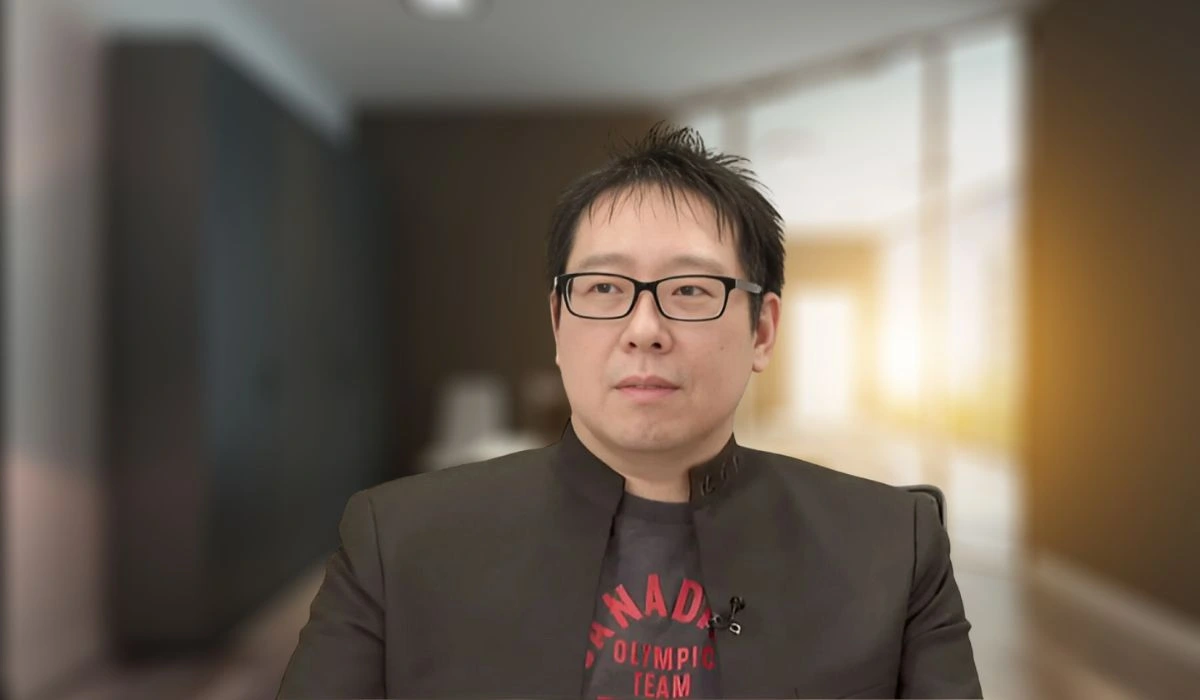- Samson Mow’s journey from gaming to Bitcoin advocacy highlights his vision for financial freedom and decentralized economies.
- As founder of JAN3, Mow advises nations on adopting Bitcoin, aiming to reshape financial systems globally.
Samson Mow is a unique figure in the technology sector. Originally driven by gaming, Mow has developed into one of the most outspoken advocates of blockchain technology and Bitcoin acceptance.
His attention grew to a far more broad field as he moved from game production to cryptocurrency: one that would change the global financial system, empower governments, and shift economies.
This is the narrative of a visionary whose path crosses the energetic gaming sector, big exchanges, powerful technology companies, and even government buildings.
From Gaming Pioneer to Bitcoin Advocate, Mow started his path in Canada, where he obtained a Bachelor of Business Administration. His first steps into the working world were in the gaming business, where he advanced fast through big corporations.
He worked at companies including Relic Entertainment and Ubisoft, where he assumed major responsibility for game production. His successes in the gaming industry resulted in the launch of Pixelmatic, his own game business with an eye toward immersive social events.
Pixelmatic might have been his starting point, but Mow’s curiosity soon turned to something quite different. Mow’s interest in cryptocurrencies started to deepen after 2015, and he started focusing on Bitcoin. Mow realized the potential Bitcoin kept, not only as money but also as a revolutionary tool for financial freedom and inclusion as the market for cryptocurrency was growing.
Building Foundations: From BTCC Leadership to Blockstream Innovation
Though it was still a big jump, Mow’s change from gaming to cryptocurrency was seamless. Managing major operations and guiding BTCC, one of the biggest Bitcoin exchanges and mining pools worldwide, he assumed the position of Chief Operating Officer and helped the business to be on a steady road in the erratic early years of crypto trading. BTCC developed and became known as a respectable exchange under his direction.
Mow joined Blockstream in 2017 as Chief Strategy Officer, increasing his impact in the blockchain scene. Blockstream is well-known for its Bitcoin technological innovation; Mow helped to advance its infrastructure.
His work at Blockstream confirmed his conviction that Bitcoin was a pillar of a new financial age rather than only a speculative tool. By means of his position, he contributed to building Bitcoin infrastructure and worked on initiatives guaranteeing scalable and safe blockchain solutions for financial companies all around.
JAN3 and the Vision of Bitcoin City: A New Economic Future
Mow’s commitment to Bitcoin kept developing even throughout his time with Blockstream. He started JAN3, a business committed to hastening Bitcoin acceptance in 2022. Unlike established crypto companies, JAN3’s goal was ambitious: to increase national acceptance of Bitcoin, especially in areas where unstable or less accessible financial systems exist.
Engaging El Salvador, the first nation to accept Bitcoin as legal currency, marked one of his key turning points with JAN3. Working closely with President Nayib Bukele, Mow advised on the development of Bitcoin City, a bold initiative aiming to build a city run totally on renewable energy and Bitcoin.
For Mow, Bitcoin City marks the future he sees for economies running on Bitcoin free from conventional banking constraints and open to worldwide digital transactions, not only an innovative urban idea.
Meme Coins: A Double-Edged Gateway in Mow’s Bitcoin Vision
Mow has been candidly critical of some facets of the Bitcoin space, particularly meme coins, even if he strongly advocates the money. Unlike Bitcoin, which Mow sees as a major asset with the power to transform world economies, meme currencies usually have little inherent value and, in his view, inspire reckless speculation.
Mow’s criticism of meme currencies stems from his worry that these coins would deflect focus from Bitcoin and foster a speculative investing culture instead of a real financial empowerment one.
Mow, meanwhile, is pragmatic. Though their volatility, he notes that meme currencies have helped lure mainstream investors into the crypto space.
Meme coins are a “gateway” for many new investors into cryptocurrency, which piques interest and drives them to investigate more established digital assets such as Bitcoin. According to Mow, meme coins have opened the path for many but have a limited place in a future he sees driven by Bitcoin and its special promise.
Mow’s idea of Bitcoin goes much beyond personal investments or one-off exchanges. According to him, Bitcoin is a tool that may empower people, safeguard riches in unstable economies, and provide a kind of financial stability free from national boundaries.
Mow has advised governments all across on the strategic use of Bitcoin, notably as a reserve asset; his support transcends social media or conferences.
He recently discussed his opinions regarding Bitcoin’s ability to transform developing nation financial systems at BTC Prague 2023. His presentations at international events, including those in Germany and Switzerland, have centered on Bitcoin’s contribution to national wealth preservation and substitute for fiat money subject to inflation.
A Vision Unfinished: Samson Mow’s Ongoing Mission for BTC
The road Samson Mow travels is far from finished. He recently joined fellow Bitcoin supporters in debating the future of the currency at the Plan B conference in Lugano, Switzerland. The celebration of Bitcoin’s effect unveiled a statue to Satoshi Nakamoto, the pseudonymous founder of the technology, so reflecting its expanding influence on the planet.
For Mow, this occasion served as a reminder of Bitcoin’s revolutionary potential rather than a celebration. Mow is dedicated to his goal even while the crypto space is changing and new coins and projects are arising all the time. He keeps interacting with nations interested in using Bitcoin through JAN3 in order to promote resilience and economic freedom.


